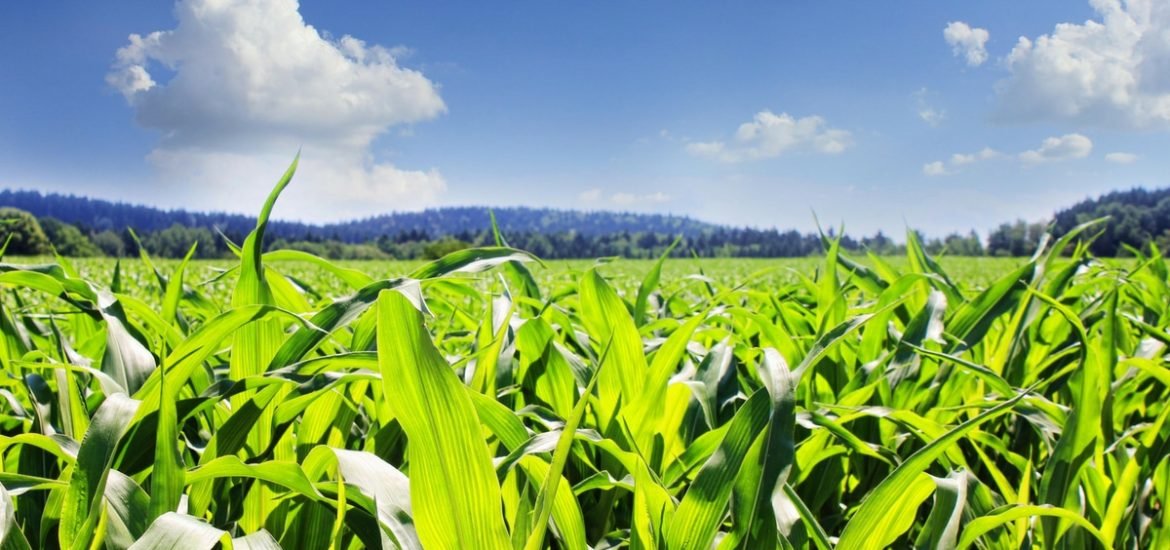
Two separate studies published this week show that beneficial soil microbes can support certain agricultural crops. One study has identified an unusual relationship between a particular species of maize and soil bacteria and the other shows evidence the ability of certain plants to recruit beneficial bacteria is down to genetics.
Research published on July 7 in PLoS Biology, an open-access peer-reviewed journal, has shown that a newly identified maize crop is capable of obtaining nitrogen ―an essential nutrient ― directly from bacteria in the soil. Sugars produced by corn are eaten by beneficial bacteria which in turn extract nitrogen from the air and convert it into ammonia or other molecules required by living organisms in a process known as nitrogen fixation.
The study led by Alan Bennett and Allen van Deynze of UC Davis investigated this intriguing corn and found that unlike other cereals, this unique variety obtains 29 to 82 per cent of the nitrogen it needs, which would typically be attained through fertilizers, indirectly from the air via microbes. Instead of needing fertiliser, the above-ground aerial roots of this corn variety produce a sugary substance to entice bacteria, which reciprocate by providing nitrogen from the air in a usable form. It is estimated that the energy-intensive process required to produce commercial fertilisers uses up around 1 to 2 per cent of the global energy supply, thus bacterial nitrogen fixation could result in significant energy savings.
The concept is not unheard of in plant species. In fact, this type of synergistic relationship often exists between certain legumes and soil microbes, which provide them with nitrogen. However, the same behaviour does not normally seem to exist in cereal crops. The pea plant is one such legume that recruits top-performing bacteria for nitrogen fixation, and the focal point of another important study published on July 6 in New Phytologist, a peer-reviewed research journal. The research team, led by Joel Sachs, a professor of evolutionary ecology at the University of California, Riverside and member of the university’s Institute for Integrative Genome Biology, showed that the ability of certain plant species to recruit helpful bacteria may be down to genetics.
Some plants are better than others at recruiting the most beneficial bacteria, however, understanding why these differences exist is difficult because the genetic and environmental factors governing plant growth are complex. Most plants tend to attract a combination of supportive and ineffectual bacteria and previous attempts by agronomists to improve yields by manipulating microbial populations in the soil surrounding certain crops have been mostly met with failure.
By observing changes in how a species of pea plant (Acmispon strigosus) engages with different strains of nitrogen-fixing bacteria under various environmental conditions ― including fertilising the soil ― the researchers were able to show that environmental factors have little effect on how plants interact with beneficial soil microbes. Interestingly, genetic variation between different species of pea plant had the biggest influence on whether the plants engage with high-performance microbes and can result in significant growth advantages.
Both research studies suggest it may be possible to breed plants that are better at selecting the most favourable microbial environment. These findings could have a significant impact on crop productivity and nitrogen use, particularly in agricultural areas with poor soil nutrition. Understanding specific traits that allow crops to recruit top-performing microbes may be the key to sustainable agriculture.
(1) Van Deynze A. et al. Nitrogen fixation in a landrace of maize is supported by a mucilage-associated diazotrophic microbiota. PLOS Biology (2018). DOI: 10.1371/journal.pbio.2006352
(2) Wendlandt C.E. et al. Host investment into symbiosis varies among genotypes of the legume Acmispon strigosus, but host sanctions are uniform. New Phytologist (2018). DOI: 10.1111/nph.15378